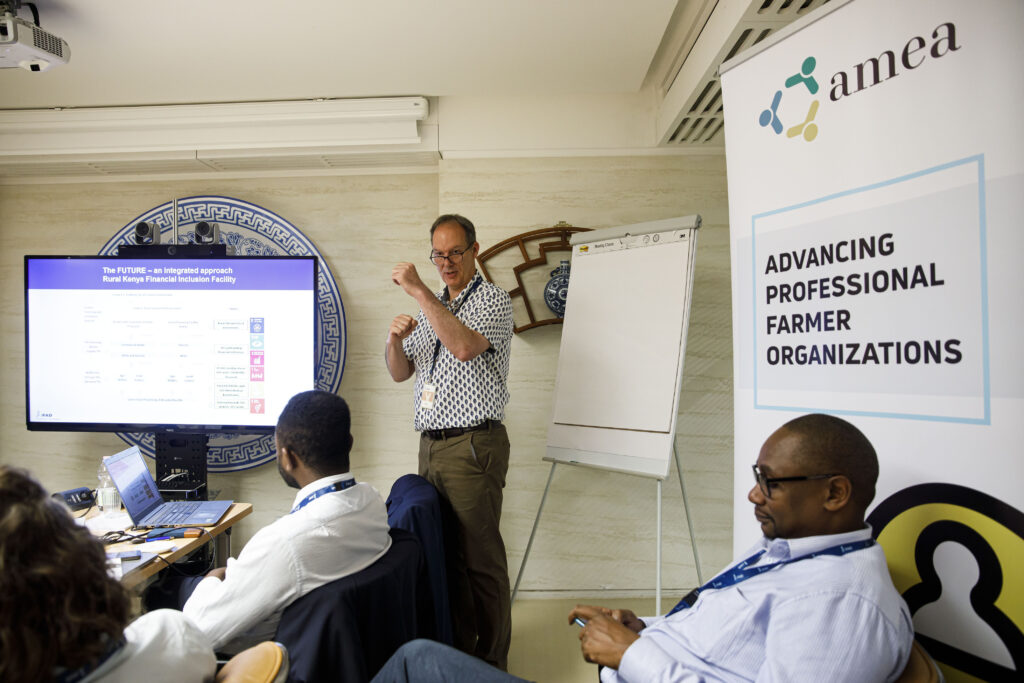Annual Learning Event 2024

On 25 and 26 June 2024, AMEA held its fourth Annual Learning Event (ALE). Our aim was to: Inspire you by inviting four key-note speakers to share their BDS Visions! Provide learning from across the Network Generate debate Provide ideas for partnership Launch our Global Learning into Action Initiative read the summary here BDS […]
Corus International’s Food Safety Tool

With funding from the International Fund for Agricultural Development (IFAD) through the AMEA network, Corus International created an innovative Food Safety-First (FS-First) Budget Tool to help farmer organizations’ ability to cost out and plan steps to enhance their professionalism and meet food safety standards for their buyers and consumers. The tool provides a step-by-step guide […]
Cooperative-driven development in Ethiopia (technical note)

Nuru has developed an adaptive and locally-led cooperative development approach that has a lifetime of five to seven years, after which, as the cooperatives become increasingly self-reliant, Nuru exits the communities. Nuru’s model and approach is examined in this case study by reviewing BDS activities implemented from 2016 to 2022. As of 2022, Nuru supported […]
Cooperative-driven development in Ethiopia (case study)

Nuru has developed an adaptive and locally-led cooperative development approach that has a lifetime of five to seven years, after which, as the cooperatives become increasingly self-reliant, Nuru exits the communities. Nuru’s model and approach is examined in this case study by reviewing BDS activities implemented from 2016 to 2022. As of 2022, Nuru supported […]
CNFA agro-dealer training program in Rwanda

From May to June 2023, a joint initiative between CNFA and SCOPEinsight, with support from AMEA, aimed to assess the effectiveness and impact of capacity-building services provided to agro-input retailers under the CNFA-implemented Hinga Weze program in Rwanda. The flagship Hinga Weze program, funded by USAID with $32.6 million USD and implemented by CNFA from […]
lessons from AGRA’s Input Finance Model (technical note)

This case study examines the risk-sharing input finance model implemented by one of AMEA’s members, AGRA, in Ghana and Burkina Faso over the past several years. Following a successful proof of concept in Ghana, AGRA replicated the model with context-specific adaptations in Burkina Faso beginning in 2019 (with first financing taking place in 2020). The […]
lessons from AGRA’s Input Finance Model in Ghana and Burkina Faso

This case study examines the risk-sharing input finance model implemented by one of AMEA’s members, AGRA, in Ghana and Burkina Faso over the past several years. Following a successful proof of concept in Ghana, AGRA replicated the model with context-specific adaptations in Burkina Faso beginning in 2019 (with first financing taking place in 2020). The […]
Access to finance lessons from the cocoa sector in Côte d’Ivoire

AMEA commissioned a case study to understand if the technical assistance and Business Development Services provided to producer organizations has enabled them to access finance. Additionally, this study highlights promising approaches to delivering segmented, targeted capacity development and explores the need for a database of cocoa Producer Organizations. Download the case study here
Glimmer adaptation of ALP and SCOPE tools for rural SACCOS

As part of its approach, Glimmer promotes capacity building of Rural Savings and Credit Cooperatives (RuSACCOs) to serve as the primary financial resource for local communities. Glimmer selected two tools in the AMEA Toolbox: SCOPEinsight’s SCOPE Basic assessment tool to evaluate RuSACCOs’ business management capacity; and IFC’s Agribusiness Leadership Program (ALP) for training and coaching […]
Kilimo Trust’s consortium approach to value chain development

Between 2018 and 2021, Kilimo Trust implemented the second phase of the Regional East African Community Trade in Staples (REACTS-II) project as a continuation of REACTS-I (2014-2017). Commissioned by the Alliance for a Green Revolution in Africa (AGRA), REACTS-II was designed to directly support smallholder farming households and other value chain actors across three East […]
